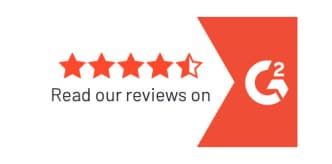Sometimes called “profit-sharing plans,” non-elective 401(k)s can be a powerful tool for small businesses to retain good employees, reduce taxes, and help business owners prepare for their own retirement.
But they’re not right for every business, so make sure you understand the pros and cons before jumping into this type of retirement plan.
What are Non-Elective Contributions?
Non-elective contributions are funds employers pay directly to workers’ retirement plans, regardless of whether employees make their own contributions. These contributions come directly from the employer, and are not deducted from employees’ salaries.
This distinction separates a non-elective contribution from a matching contribution plan where an employer contributes depending on the amount of money deducted from an employee’s salary.
Employees love non-elective contributions because they are paid above their regular wages, essentially giving them extra compensation without extra work. And, when invested, these funds can provide a substantial boost to their retirement savings, helping them achieve more than they could do on their own.
Employers love them too. Non-elective plans give businesses the flexibility to change contribution rates as needed. However, non-elective contributions can not exceed the annual contribution limits the Internal Revenue Service (IRS) set ($58,000 annually in 2022).
And, they provide advantages that can help businesses plan for and moderate their tax burdens.
Advantages of Non-elective Contributions to Small Businesses
Non-elective contributions are tax deductible and can encourage more employees to participate in the company’s retirement plan.
The decision to offer fully-vested non-elective contributions can also provide retirement plans with Safe Harbor protection, which exempts plans from government-mandated nondiscrimination testing, refunds, and penalties. The IRS administers these tests to ensure plans are designed to benefit all employees instead of favoring highly-compensated ones. Making non-elective contributions can help employers meet this goal while remaining compliant with government rules.
To be granted safe harbor by the IRS, employers’ non-elective contributions must be at least 3% of employees’ pay. For example, an employer may decide to contribute 10% of the employee’s salary towards the retirement plan. This means that, for every one dollar of salary, the employer will contribute 10 cents, regardless of whether the employee makes an elective deferral towards the plan.
Contributions are made at year’s end, giving employers time to determine what they can afford. However, safe harbor non-elective contributions can also be paid with each payroll, equalizing these annual costs. And, using an automated provider like 401GO, these payroll deductions are done automatically, removing the time and hassle burdens from business owners and their admins.
Plan sponsors can select different eligibility rules for the non-elective and matching contributions. For example, a plan could allow immediate eligibility for employees to make their own deferrals, while requiring 1 year of employment before receiving profit-sharing funds.
Because non-elective contributions don’t count toward the IRS deferral limit, highly compensated employees can maximize their retirement contributions, and the employer will not have to worry about annual compliance testing. Some of the calculation options are weighted for age and salary. This allows business owners to offer attractive compensation plans to their key employees, and gives them added ability to maximize their own retirement accounts.
401GO can help you design a plan with Safe Harbor non-elective contributions that meet your business needs and ensure compliance.
Disadvantages of Non-elective Contributions
Offering non-elective contributions may not be feasible for all employers, especially those running small businesses. Making non-elective contributions means flowing money into default funds for employees who don’t manually enroll, contribute, or select an individual retirement plan. Employers must take due diligence and be responsible for enrolling and selecting this fund for the employee.
To simplify this process, the Pension Protection Act of 2006 outlined its Qualified Default Investment Alternatives (QDIAs) program and how employers can enroll workers in these funds while maintaining Safe Harbor protection.
However, this should not be viewed as the definitive option that would meet the needs of all employees. Employers should still look at their workforce to determine the appropriate plan needed for them while also remaining compliant with government regulations.
Choosing 401GO as your 401(k) provider can alleviate some of these concerns, as we will provide for the QDIA, send out required annual notices, file reports, and manage the administration of the plan on your behalf.
Tax Benefits Can Save Businesses Thousands
One of the main benefits of non-elective contributions is that the contributions are tax-deductible for the business, which can provide a significant tax break for the employer. Businesses can provide additional retirement funds in lieu of a raise, without increasing payroll taxes, and many employees prefer this type of compensation, making it a win-win.
Employers who make a non-elective contribution can often offset the cost of the contributions from the tax breaks they receive.
Why Employees Love Profit-Sharing
A benefit of non-elective contributions is that this may be the only funds the employee is putting into their retirement account. A shocking 55% of employees do not keep a retirement savings account, which leaves them more vulnerable to retirement emergencies and expenses.
Employees with tight budgets often appreciate having some retirement savings without needing to defer any of their own pay. By giving such employees non-elective contributions, an employer motivates the employees to contribute to their 401(k) plan more frequently and plan for their retirement.
Is a Non-Elective Plan Right for You? Just Ask.
Profit-sharing plans are not right for every business. They can be expensive for some small companies, so you’ll want to consider all your financial and labor needs before committing.
401GO makes the process as seamless as possible. We provide profit-sharing calculations, simple automated management, payroll integration and compliance monitoring all at a low per-participant price.
If you’re thinking of offering non-elective contributions to your team, ask us for a quote. We’ll be happy to walk you through the decision.



